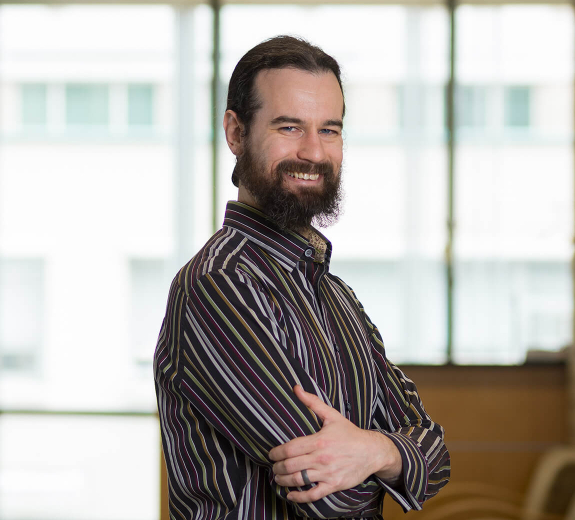“The skin is our major barrier to the outside world. It protects us from UV radiation, it fights off infection, it starts wound healing when you get a cut,” Dr. Morawski says. “We want to learn more about why immune system processes in the skin go wrong and how we can stop that from happening.”
T Cell Job Training
Studying how T cells learn to do the “right” job is one of the Morawski Lab’s key areas of research. For example, how do they learn that they’re supposed to attack bacteria but leave healthy skin cells alone? How do non-immune skin cells help train T cells? And how do T cells in the skin change the behavior of non-immune skin cells?
“Answering these questions gives us a better understanding of the cells’ underlying biology, and that helps us understand what goes wrong in disease,” Dr. Morawski says.
His team is using donated skin samples from Virginia Mason Medical Center patients who have had panniculectomy surgeries (tummy tucks) to study these questions.
“Typically, BRI uses small blood samples or tiny biopsies that give us about 100,000 cells to study,” Dr. Morawski says. “But with these donated samples, we have millions of cells to study. A lot of our research wouldn’t be possible without this volume of tissue.”





